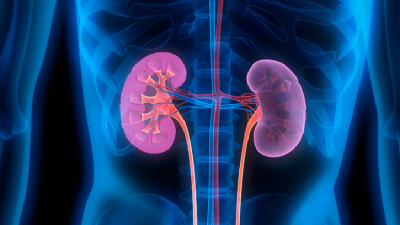Vitamin D supplementation shown to reduce period pain and use of analgesics – systematic review

Characterised by painful menstrual periods, dysmenorrhoea is categorised into two types — primary dysmenorrhoea, where no underlying medical condition is present; and secondary dysmenorrhoea, which results from conditions such as endometriosis.
Although nonsteroidal anti-inflammatory drugs (NSAIDs) are typically the first-line treatment, they have been linked to kidney injury, gastrointestinal bleeding, and high rates of hypersensitivity reactions.
Evidence suggests that vitamin D inhibits pain-sensing signals at the dorsal root ganglion and reduces inflammation factors, and therefore, supplementation of this nutrient may be an alternative treatment option for dysmenorrhoea.
However, its effect on pain intensity in different types of dysmenorrhoea remains unclear.
A group of researchers in Taiwan sought to evaluate the effectiveness of vitamin D supplementation in alleviating dysmenorrhoea-related pain via a systematic review and meta-analysis of randomised controlled trials (RCTs).
They searched for RCTs published on The Cochrane Library, Embase, Google Scholar, Medline, and Scopus from inception to December 30, 2023. A total of 11 studies involving 687 participants were included.
The primary and secondary outcomes were measured by changes in pain intensity and use of rescue analgesics (pain relievers) respectively.
It was found that vitamin D supplementation significantly decreased pain intensity in people with dysmenorrhoea (pooled mean difference of -1.64; 95% confidence interval, -2.27 to -1; p < 0.001), as compared to controls.
The I2 statistic was 79.43% (p < 0.001), which highlights substantial heterogeneity among the included studies.
In addition, trial sequential analysis (TSA) was conducted to assess the statistical power and precision of the meta-analysis, and identify the “true” intervention effect.
TSA results showed that the RCTs provided sufficient information. In subgroup analyses, vitamin D supplementation significantly reduced primary dysmenorrhoea pain, but not secondary dysmenorrhoea pain.
Furthermore, both daily (pooled MD of -1.06; 95% CI, -1.86 to -0.26; p < 0.001) and monthly (pooled MD of -2.29; 95% CI, -2.82 to -1.77; p < 0.001) administration of vitamin D supplementation proved to be effective.
Only two of the 11 studies compared the number of events involving the use of rescue analgesics between the groups with and without vitamin D supplementation.
While the meta-analysis indicated a trend towards decreased use of rescue analgesics among those receiving vitamin D supplementation, it did not reach statistical significance to draw conclusive findings, underscoring the need for further studies with larger sample sizes.
“We found that vitamin D supplementation was effective in reducing pain intensity in people with dysmenorrhoea, especially primary dysmenorrhoea, and the cumulative power in subgroup analyses supports a ‘true’ treatment response,” the researchers reiterated.
Impact of vitamin D deficiency
A known risk factor of endometriosis, vitamin D deficiency has been reported to induce or exacerbate dysmenorrhoea symptoms.
In this review, subgroup analyses showed that vitamin D supplementation effectively alleviates dysmenorrhoea in people with vitamin D deficiency.
Notably, seven of the included studies were conducted in Iran, where the prevalence of vitamin D deficiency in Iranian women is reportedly as high as 64%.
Although the other studies did not specifically target patients with vitamin D deficiency, the baseline serum 25-hydroxyvitamin D (25(OH)D) levels were relatively low.
Women’s Health and Clinical Nutrition will be major topics of focus at Growth Asia Summit 2024 – join us in Singapore to learn about market opportunities and glean insights from major industry experts. Find out more here.
“While subgroup analyses and meta-regression indicated that vitamin D supplementation reduces dysmenorrhoea pain independently of baseline vitamin D deficiency status, it is uncertain whether the efficacy of the supplements is due to correcting vitamin D deficiency or a pharmacological effect.”
In three studies involving people with secondary dysmenorrhoea, including those with endometriosis, vitamin D supplementation was effective in relieving pain, albeit not statistically significant.
“Further investigations are imperative to comprehend the effectiveness of vitamin D supplementation on patients with secondary dysmenorrhoea.”
Among the included studies, the varying frequencies of vitamin D intake all appear to be effective in reducing dysmenorrhoea-associated pain. However, the optimal frequency of vitamin D supplementation for treating dysmenorrhoea remains to be elucidated.
It should be noted that this review has some limitations, including the small number of available RCTs in this area, which may not fully address potential study biases.
“Nevertheless, the meta-regression confirmed that the risk of bias did not represent an effect modifier. Additionally, sensitivity analyses excluding studies with unblinded methods and funded or unclear placebo designs showed similar results to our primary analysis, suggesting the robustness of our findings.”
Source: Nutrients
https://doi.org/10.3390/nu16071089
“Vitamin D Supplementation for Patients with Dysmenorrhoea: A Meta-Analysis with Trial Sequential Analysis of Randomised Controlled Trials”
Authors: Kan-Chu Lin, et al



















